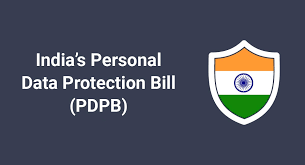The Indian Data Protection Bill
The Indian Data Protection Bill, also known as the Personal Data Protection Bill (PDPB), is a proposed law designed to regulate the processing, storage, and use of personal data in India. The bill was first introduced in the Indian Parliament in 2019, and has been under discussion and revision ever since. In this article, we will take a closer look at the PDPB, its key features, and what it means for businesses operating in India.
The Need for a Data Protection Bill in India
India has been grappling with issues related to data protection and privacy for several years now. With the growth of the digital economy and the increasing use of technology, personal data is being collected and processed at an unprecedented scale. However, there has been a lack of clear guidelines and regulations governing the use of this data, leading to concerns about its misuse and abuse.
In this context, the PDPB seeks to establish a comprehensive legal framework for the protection of personal data in India. The bill is based on the principles of transparency, accountability, and user consent, and seeks to balance the needs of businesses with the rights of individuals.
Key Features of the PDPB
The PDPB is a comprehensive piece of legislation, covering a wide range of issues related to data protection and privacy. Some of its key features include:
Personal Data Categories: The bill defines different categories of personal data, such as sensitive personal data, critical personal data, and anonymized data. Each category is subject to different levels of protection and regulation.
User Consent: The bill requires that all processing of personal data be based on the consent of the user. This consent must be freely given, specific, informed, and revocable.
Data Localization: The bill requires that certain categories of personal data be stored within India. This is intended to promote data sovereignty and prevent the misuse of personal data by foreign entities.
Data Protection Authority: The bill establishes a Data Protection Authority (DPA) to oversee the implementation and enforcement of the law. The DPA will have the power to investigate complaints, issue orders, and impose penalties for non-compliance.
Data Breach Notification: The bill requires that all data breaches be reported to the DPA and affected individuals within a specified timeframe. This is intended to ensure prompt action in the event of a data breach.
Impact on Businesses
The PDPB is expected to have a significant impact on businesses operating in India, particularly those that collect and process personal data. Some of the key implications of the bill for businesses include:
Compliance Costs: Businesses will need to invest in new technologies and processes to ensure compliance with the bill's requirements. This may involve significant costs, particularly for smaller businesses.
Data Localization: The requirement to store certain categories of personal data within India may also impact the operations of businesses that rely on cloud computing or data processing services located outside India.
Data Protection Officer: The bill requires that certain businesses appoint a Data Protection Officer (DPO) to oversee compliance with the law. This may require additional staffing and training costs.
Penalties for Non-Compliance: The bill imposes significant penalties for non-compliance, including fines of up to 4% of global turnover or INR 15 crore (approximately USD 2 million), whichever is higher. This is likely to incentivize businesses to take data protection and privacy more seriously.
Conclusion
The Indian Data Protection Bill is a significant piece of legislation that seeks to establish a comprehensive legal framework for the protection of personal data in India. While the bill is still under discussion and revision, it is expected to have a significant impact on businesses operating in India. Businesses will need to invest in new technologies and processes to ensure compliance with the bill's requirements, and may also


Comments
Post a Comment